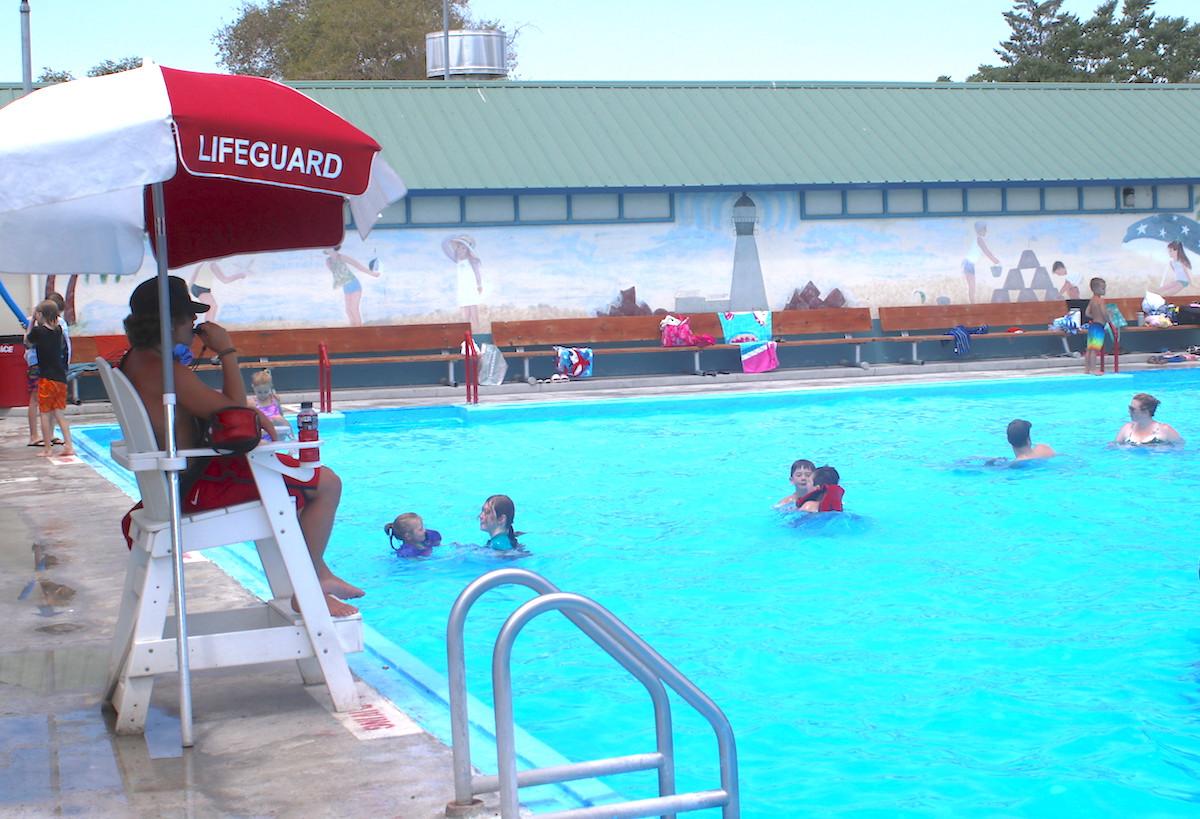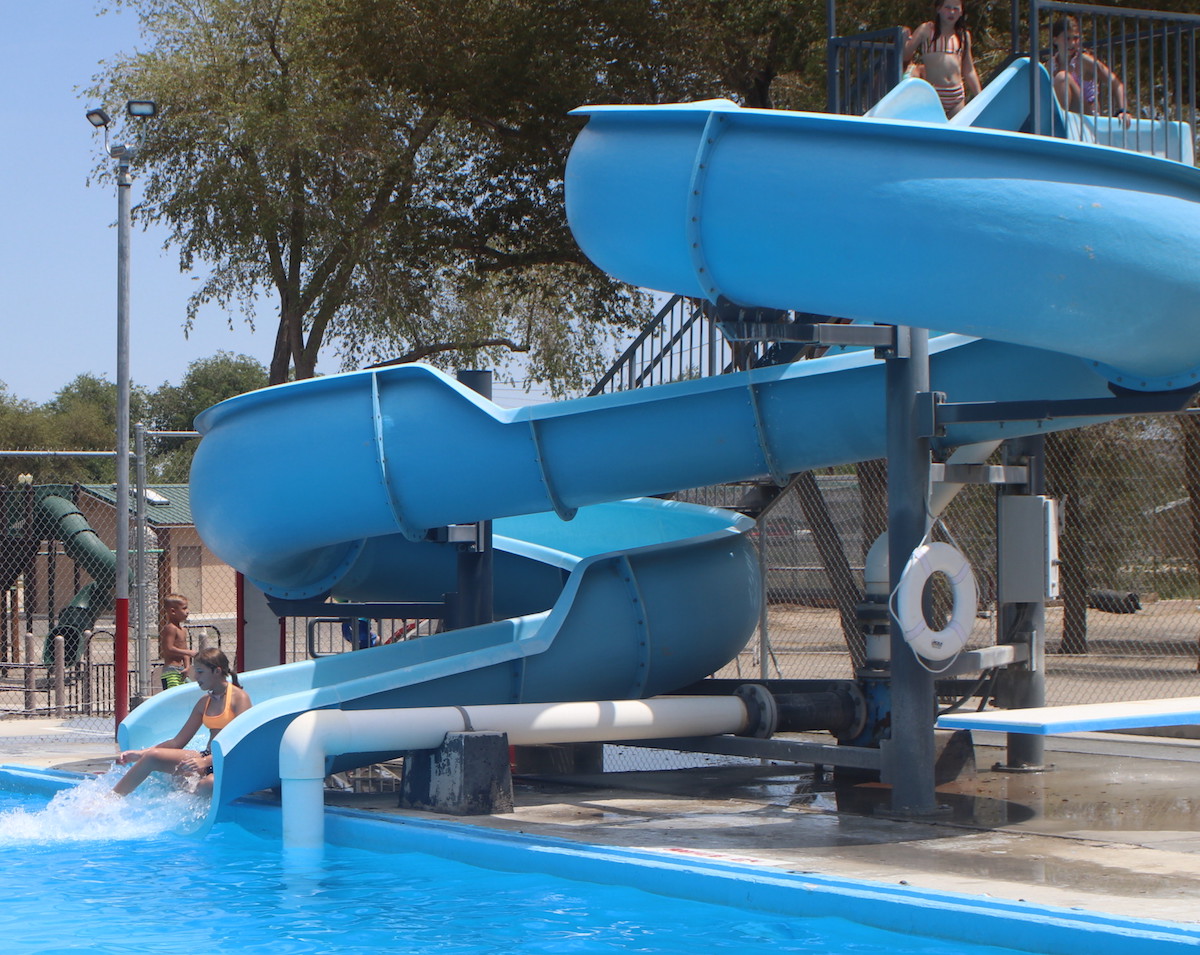Nothing like fresh, ice cold lemonade on a summer day with the sweltering heat. Cousins RJ, 15, left, and Maliah, 12, along with Johnny (who stopped in) are selling at East Stillwater Avenue and Ideal Drive. They are raising money for Maliah's school trip to Washington, D.C. They will be selling Wednesday and Friday from 9 a.m. to 4 p.m. They have regular, strawberry and berry blast.
 A lifeguard watches swimmers Monday morning at the Fallon pool.
A lifeguard watches swimmers Monday morning at the Fallon pool.
 A girl beats the heat at the Fallon pool.
A girl beats the heat at the Fallon pool.
Comments
Use the comment form below to begin a discussion about this content.
Sign in to comment